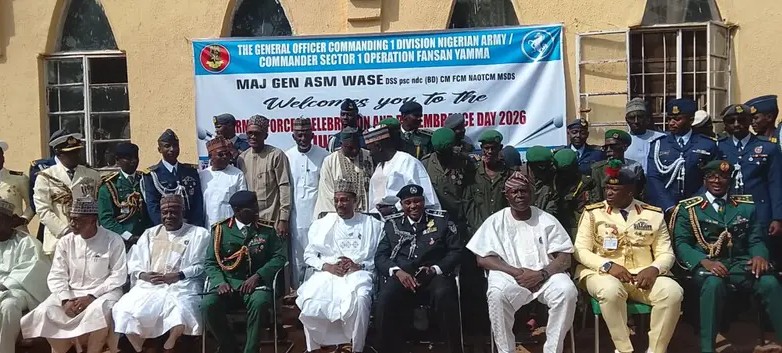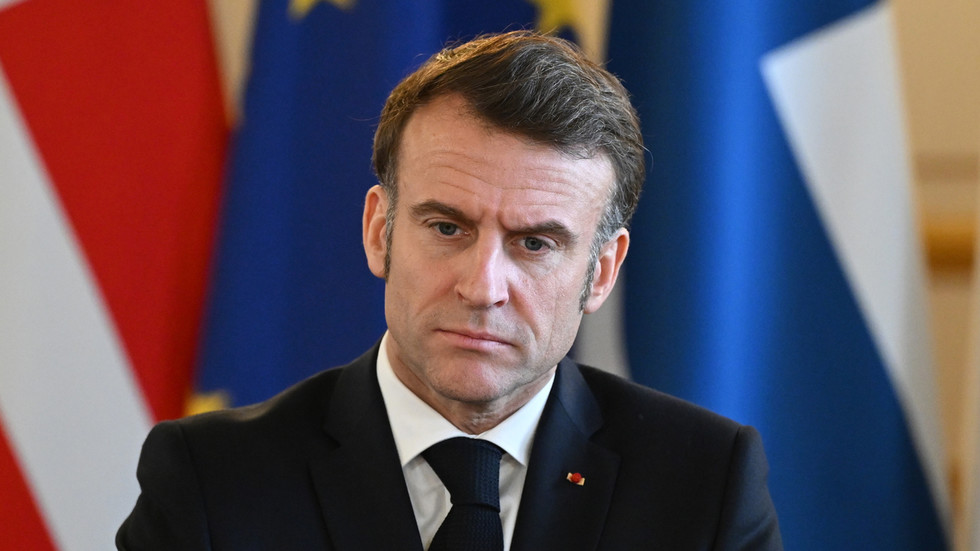Crisis looms as World Food Programme’s (WFP) new policy to prioritize aid for the most vulnerable refugees in Uganda has sparked desperation and a surge in social issues. Refugees find themselves resorting to drastic measures to cope with reduced rations and cash assistance. Amid widespread concerns, the controversial policy rollout is causing upheaval in the lives of 1.4 million refugees in the country.
Since the inception of the needs-based policy in 2021, followed by its contentious full implementation in July, refugees have been grappling with severe consequences. The dire impacts include increased crime, child marriage, prostitution, and sexual abuse as families struggle to adapt to diminished support. This shift was triggered by a series of budget cuts, prompting the WFP to prioritize aid for the most vulnerable refugees, leaving a significant portion with reduced or no assistance.
In the wake of these changes, security measures in refugee settlements have been stringent to prevent potential protests. Police supervision during food distributions and concerns about staff safety highlight the tensions surrounding the new policy.
Uganda, often hailed as a progressive host nation for its refugee-friendly policies, now finds itself at the epicenter of a global humanitarian debate. The implications of this policy experiment could reverberate across the 86 countries where WFP operates, including Bangladesh, Haiti, and Syria, making Uganda a litmus test for the efficacy of such initiatives worldwide.
Amid mounting concerns, an investigation unveiled that the policy overhaul lacked thorough consultation with aid groups and those dependent on assistance. Refugees were classified into different vulnerability levels, determining the extent of aid they receive. However, criticisms emerged regarding the accuracy and fairness of the data used, raising doubts about the categorization process.
The WFP defended its actions, citing the necessity to make challenging decisions amid resource constraints. However, the repercussions of these decisions have brought to the fore fundamental questions about the ethical implementation of humanitarian assistance and the need for sustainable support mechanisms.
The United States and Britain, major donors to Uganda’s refugee response, have long called for a shift away from blanket support in protracted crises, advocating for a more targeted approach. However, the abrupt nature of the changes and the lack of avenues for refugees to appeal their categorization have prompted widespread dismay.
Despite WFP’s assertion that the policy aims to ensure the most vulnerable receive the highest possible ration, concerns about flawed vulnerability criteria and the potential exclusion of refugees persist. The pitfalls of this abrupt transition have raised urgent calls for a reevaluation of support mechanisms to uphold the dignity and well-being of refugee communities.
As the fallout from this policy reverberates, critical questions emerge about the future of refugee assistance not only in Uganda but also in other settings grappling with shrinking humanitarian aid budgets. The need for a more holistic and inclusive approach to refugee support has never been more apparent.
Uganda, for its part, places the onus on aid organizations to provide additional support beyond hosting refugees. This stance underscores the delicate balance between international aid efforts and the responsibilities of host nations in managing protracted refugee crises.
Amid these challenges, the plight of refugees in Uganda serves as a poignant reminder of the intricate complexities underlying global humanitarian assistance, urging stakeholders to deliberate on more humane and sustainable approaches to support displaced populations.
Uganda’s Refugee Crisis: A Looming Catastrophe
Uganda has long been hailed for its hospitality and open-door policy towards refugees, hosting one of the world’s largest refugee communities. However, behind this commendable act lies a brewing storm, with the response to the crisis teetering on the edge of a funding abyss.
The refugee response in Uganda paints a grim picture – severely underfunded and struggling to meet the basic needs of those seeking sanctuary within its borders. As per private minutes from the Refugee Humanitarian Programme Group (RHPG) meeting, Uganda’s overall inter-agency response grapples with a staggering funding shortage of 87%, equating to a whopping $846 million.
This dire financial shortfall has also encroached upon key organizations like UNHCR, exacerbating their funding gap to approximately 74%, standing at around $255 million. The repercussions of this funding crisis are dire, signaling a slow-burn catastrophe that could potentially displace refugees from Uganda, forcing them back into the very conflict zones they had fled. Most of these refugees escaped the harrowing conflicts of Sudan, South Sudan, and the Democratic Republic of the Congo.
Anecdotal evidence from refugees and aid workers paints a harrowing reality, indicating a growing exodus of families to countries like Kenya, lured by the promise of better rations. Heartbreaking accounts of individuals, such as Jacob Okot, who, despite battling diabetes and being unfairly categorized, have been left neglected and desolate, underscore the desperation and neglect plaguing the refugee crisis.
The plight of vulnerable groups, including people with chronic illnesses like diabetes and HIV, as well as those with disabilities, is particularly distressing. From the arduous search for sustenance to the struggle for basic necessities, the disabled find themselves pushed to the brink, with little to no assistance in sight.
Moreover, the repercussions of these funding cuts manifest in a myriad of agonizing forms within the refugee settlements. Reports from the APEAL Consortium reveal spikes in theft, prostitution, child labor, and domestic abuse, all attributed to the debilitating impact of the funding cuts. The report also highlights a distressing surge in alleged cases of sexual abuse and exploitation, shedding light on the grim realities faced by refugees in Uganda.
One particularly haunting incident that reverberates through humanitarian and refugee circles is the tragic suicide of a 15-year-old boy. Allegedly, he took his own life upon discovering that his family had been reclassified into the least vulnerable category, plunging them into a state of destitution. With the weight of caring for his siblings thrust upon his young shoulders, the magnitude of the crisis cuts deep, unearthing the profound human tragedies that unfold amidst the bureaucratic intricacies.
The implementation of policies designed to address these crises has been riddled with challenges, exacerbating the already dire circumstances. The prioritization scheme, hinging on data collected during profiling surveys by UNHCR and government workers, has faced scrutiny for its lack of transparency and the potential of inaccuracies stemming from outdated or inadequate information.
Voices from within the refugee communities echo this sentiment, citing the rushed and opaque nature of the profiling surveys, which failed to adequately capture the nuanced needs of the refugees. The repercussions of this flawed process have been dire, leading to misallocation and inadequate support for those in dire need.
Moreover, the financial constraints have led to the prioritization scheme being overshadowed by funding limitations, rather than the genuine vulnerabilities of the refugees. This mismatch has birthed a system fraught with “inbuilt targeting errors,” systematically overlooking certain profiles and failing to accurately identify and address the most vulnerable households.
The urgency of this crisis cannot be overstated, as it threatens the lives and livelihoods of hundreds of thousands seeking refuge in Uganda. The implications ripple across generations, engulfing the hopes and aspirations of those who have already endured unimaginable hardships.
As the international community grapples with its obligations towards refugees, the spotlight is now trained on Uganda, urging a collective endeavor to avert the looming catastrophe that threatens to unravel the fragile threads of hope for those who have sought solace within its borders. The time to act is now, to avert the irreversible repercussions of this slow-burn crisis and to honor our collective commitment to humanity’s most vulnerable.
Uganda’s Refugee Prioritisation Policy Sparks Concerns and Criticism
Recent reports have shed light on the challenges faced by refugees in Uganda due to the World Food Programme’s (WFP) prioritization policy. As a result of budget constraints, only 14% of the most vulnerable refugees in Uganda were placed in the highest category of assistance, falling short of WFP’s target of 25%. Approximately 4% of the refugee population now receive no food or cash assistance, affecting their livelihoods and exacerbating their already dire circumstances.
Refugees who felt miscategorized were directed to a hotline run by WFP, but many complained that their grievances went unanswered. The lack of explanation and support left individuals like Wilbert Nadi from Bidi Bidi feeling overlooked and stranded. This sentiment was echoed by John Udo, a leader from Palabek settlement, who highlighted the insufficiency of assistance provided under the new prioritization scheme.
Furthermore, the so-called “appeals mechanism” has faced criticism for its limited scope, with one response worker describing it as a mere “data cleaning” exercise. The absence of follow-up interviews or household visits during the review process has raised doubts about the thoroughness and fairness of the categorization system.
Compounding these issues, a leaked report from a consortium of response organizations highlighted adverse outcomes triggered by the cuts, including increased crime, prostitution, sexual abuse, and child marriages within the refugee population. Aid officials had previously expressed concerns about the security implications for their staff, underscoring the far-reaching repercussions of the funding constraints.
It is evident that the prioritization policy’s impact extends beyond food and cash assistance, neglecting crucial aspects such as health, gender, and education, which are vital for the holistic well-being of refugees. The lack of coordination between involved organizations further complicates the situation, hindering a more comprehensive and integrated approach to support.
As the plight of refugees in Uganda remains uncertain, it is essential for stakeholders to address the systemic issues arising from the prioritization policy. The need for a more inclusive and effective assistance framework, one that encompasses various dimensions of vulnerability, is paramount to alleviate the challenges faced by refugees and pave the way for a more hopeful future.



